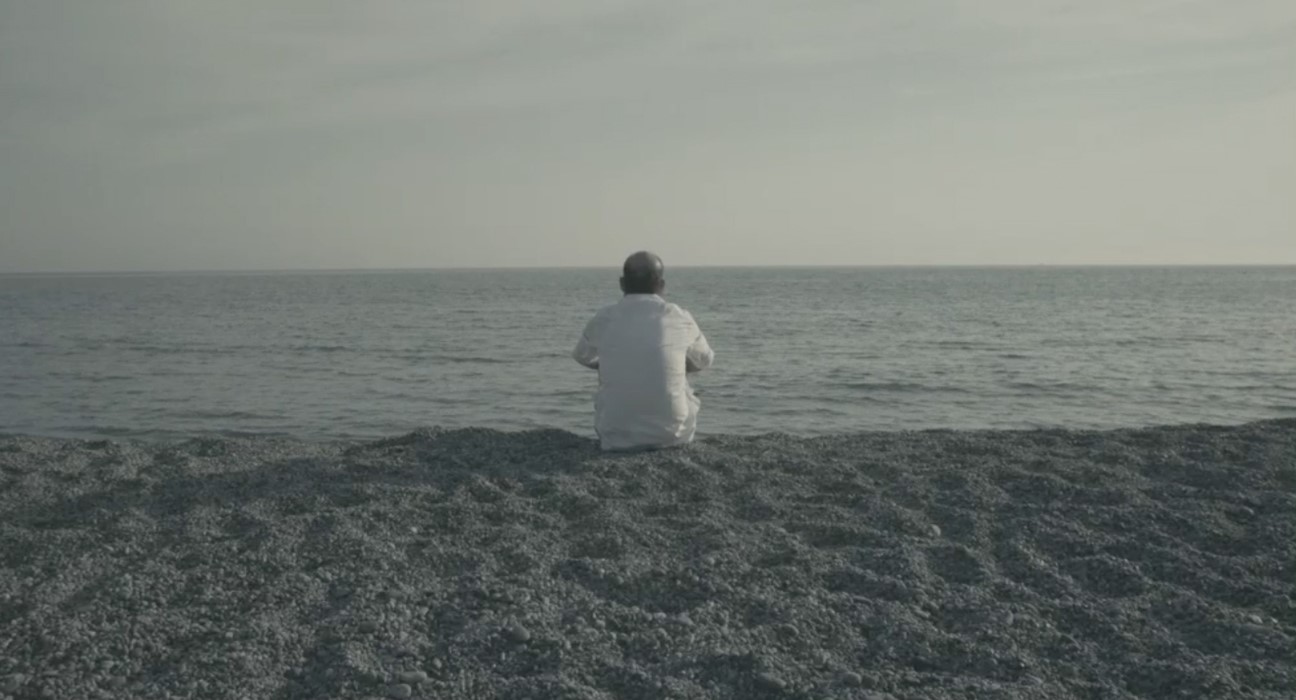A bruising tale of prostitution, corruption and murder, Tutti i rumori del mare is the first feature film from director Federico Brugia. Set against the grey, rain spattered backdrop of wintery Hungary...
A bruising tale of prostitution, corruption and murder, Tutti i rumori del mare is the first feature film from director Federico Brugia. Set against the grey, rain spattered backdrop of wintery Hungary, it focuses on a gang of sex traffickers, whose loud shirts, fur coats and cocaine habits are funded by the transport of girls over the Russian border to be sold into prostitution. At the heart of the film lies the relationship between two members of the gang – the nameless Italian driver, played by Sebastiano Filocamo and the brutal Englishman Thomas, portrayed by Benn Northover. With both their moral and emotional universes already teetering, the arrival of the latest trafficked girl, Nora, causes the collapse of the tenuous security they had manufactured by discarding the question of humanity in their actions. And as the cracks get larger and the collapse inevitable, Brugia fills the gloomy skies with mushrooming inky blots, sinister trees and juddering Tetris shapes, looming reminders of impending disaster.
Blending Italian, Hungarian and British sensibilities, Tutti i rumori del mare is a shattering exploration of a very modern social issue, told through the eyes of those complicit in the problem. Here we speak to Northover, who plays the pivotal role of Thomas in the film, about getting involved in the project and the importance of the story that it tells.
What interested you about the role of Thomas?
I found him an attractive cocktail of grace and violence. Thomas is not your typical gangster character. He's an interesting mixture of contradictions, excess and tightly wound emotion. In his work, he's a facilitator, it's something he's always been good at. But he's just going through the motions of the job, similar to how an estate agent or car salesman may do, it's just that in this case he's selling and trafficking young girls to be bought as prostitutes. In the context of the narrative, of course, Thomas is a completely amoral criminal. It's his personal demons that keep his conscience at a safe distance and eventually it's his human weaknesses that get the better of him, as situations around him slip from his control.
The film is an interesting blend of Italian sensibility, amid a Hungarian setting with a strong British element - how do you feel about this combination of cultures?
Federico's vision for the film reminded me a lot of the American and European gangster films of the 70s, films like The Conformist and Chinatown where there's a strong blend of style, character and great storytelling. They created a world that the viewer could believe and lose themselves in. This is primarily a character film. There was a sense of realism that Federico was looking for, both in the characters and the world they inhabit. Human trafficking is an international business, so the combination of language and nationality was important in grounding the story in a believable reality.
"It's estimated that there are 4 million woman and children trafficked around the world each year for purposes of forced prostitution"
It is a difficult and quite violent story - do you think it is one that is important to be told?
Although the film doesn't set out to make a political statement, in reality, Nora's story is sadly not so rare. It's estimated that there are 4 million woman and children trafficked around the world each year for purposes of forced prostitution. A high percentage of the demand comes from European countries. The number of sex-trafficking victims have risen while costs associated with trafficking have declined.
Brugia uses post production and special effects to really intriguing ends - the inky trees and the Tetris shots. What do you think this brought to the film as a whole?
Federico found a very subtle approach to visually depict a sense of impeding change. His use of effects highlight the psychological erosion that takes place as everything starts to shift. As a filmmaker, Federico has a sharp sensitivity to atmosphere coupled with an ability to home in on the subtleties of behaviour and interaction.
As an actor, writer and filmmaker, you have a wide range of interests – do you see yourself focusing on just one in the future or do they all intertwine for you?
I've always felt that my work as an actor and as a filmmaker influence and inform each other. They both began as a curiosity in what's going on under the surface of the choices that people make. In my work as an actor, I enjoy a lot the process of making films and the challenges it presents. I've been lucky enough to work with a range of different filmmakers and directors. 'Tutti I Rumori Del Mare' was a very collaborative process but on other productions you’re a hired hand. I've learnt to leave my directing hat at the door when working as an actor. But filmmaking has been an interest since I was very young, and as my friend Jonas once said; "Cinema is a big tree with many branches."
What do you have coming up next?
I'm developing a feature script with the Norwegian filmmaker Knut Åsdam, that I'm excited about. It'll be our third film project together. I'm also working on an exhibition with the filmmaker Jonas Mekas, that will be held at the Serpentine Gallery in London this winter. I'm not very good at sitting still, it's something I'm working on. Each time I finish work on a character, I'm hungry for the next.
Tutti i rumori del mare is out now in Italy. Benn Northover is a contributor to the next issue of AnOther Magazine, out September 13.
